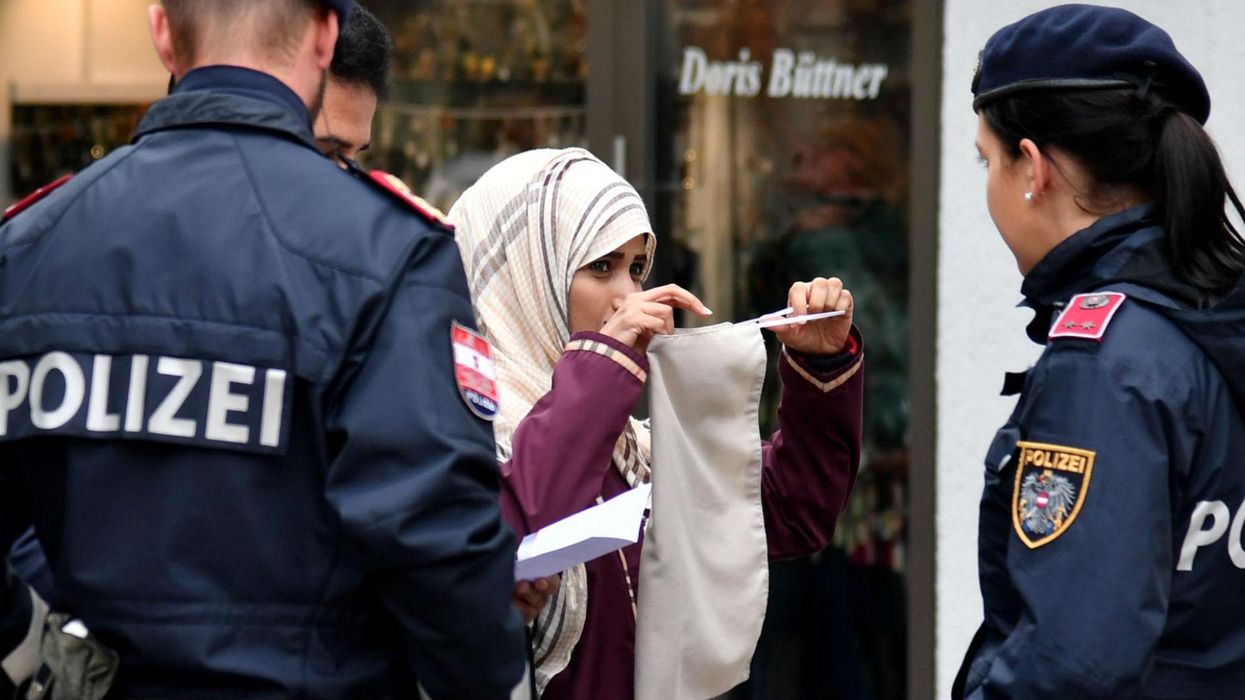News
Joe Vesey-Byrne
Oct 02, 2017

Picture:
BARBARA GINDL/AFP/Getty Images
Despite calls from the Austrian President for solidarity with a women's right to wear what they want, on Sunday police in Zell asked a woman was asked to remove her face covering.
In 2016 the left wing, former Green Party leader Alexander Van der Bellen narrowly defeated a far right, anti-Islam candidate in the country's presidential race.
In April of this year, a clip of President Van der Bellen calling for all women to wear head scarves in solidarity with Muslim women, in an effort to fight 'rampant Islamophobia', was broadcast on Austrian TV.
It is every woman’s right to always dress how she wants, that is my opinion on the matter,
And it is not only Muslim women, all women can wear a headscarf, and if this real and rampant Islamophobia continues, there will come a day where we must ask all women to wear a headscarf – all – out of solidarity to those who do it for religious reasons.
The comments were made in March, but were televised in April.
At the time, the Independent reported that 'The President’s office said he believed prohibitions were only justified in select circumstances, such as for female judges, where religious dress could raise questions over their professional neutrality'.
Austria face covering ban came into force on Sunday
From Sunday, any person in public wearing clothes that obscure their face will be liable to fine of €150, and made to remove the garment on the spot.
Concerning Islamic dress, the ban will apply to the niqab and burka, but not a hijab which can mean an item that covers the hair and neck.
Incidents where women were made to remove a face covering occurred on the first day of the ban.
The law, passed in May by the Austrian parliament, is intended to encourage 'integration' of Muslims into the community.
According to The Local, the restrictions also apply to visitors.
Immigrants to Austria will also be expected to sign an 'integration contract' and attend compulsory courses in German language, and Austrian 'values'.
Austria joins Belgium and France in enforcing a national ban, and partial bans are in place in Italy, Switzerland, Spain, and the Netherlands.
Despite Van der Bellen's victory over the far right by a margin of 53-46 per cent, the presidency is a largely ceremonial role.
The repudiation of a far right anti-Islam agenda appears not to have been carried into the legislature, which determines domestic legislation - though some believe the ban is intended to stop the advance of the far right in the upcoming elections.
Austrian legislative elections will take place on 15 October. The right wing People's Party and the anti-immigration Freedom Party are reportedly polling on 34 and 25 per cent respectively, ahead of the incumbent centre left coalition.
More: A map of the countries where women are banned from wearing the veil
Top 100
The Conversation (0)













